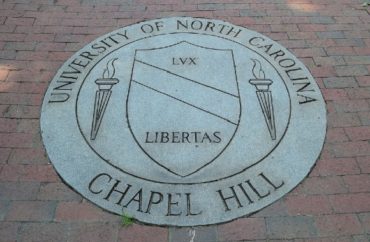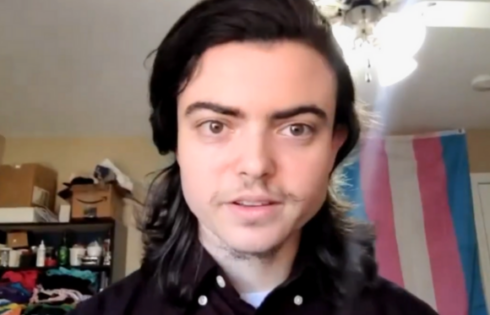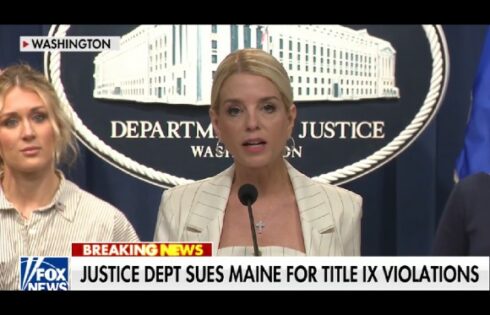
UPDATED
ANALYSIS: More than half of reviewed humanities departments lack a single Republican at the University of North Carolina Chapel Hill
Students hoping to hear from a Republican professor in the philosophy, classics, and history department are likely going to be disappointed at the University of North Carolina-Chapel Hill.
That is because there does not appear to be any Republican professors in those departments. The same goes for the studio art, art history, and American Studies departments, according to research conducted by The College Fix.
The Fix looked up professors’ political party affiliations using the North Carolina State Board of Elections’ Voter Search tool.
The Fix identified affiliations of 239 of the 327 professors across 11 departments at the public university. Most of the departments were humanities, although economics was also included. The entire breakdown can be found at the end of the article.
Of those 239, The Fix only found six Republicans. In contrast, 203 identified professors are Democrats. Another 30 are unaffiliated while 88 were unidentified. Some of the professors are registered as “unaffiliated” but regularly voted Republican or Democrat. In those cases, The Fix picked the party they usually voted for in the primaries. The ratio of Democrats to Republicans works out to about 34 to 1.
The Fix emailed five Republicans and one unaffiliated who voted Republican in their only registered primary. The unaffiliated Republican did not respond. One Republican did respond and provided comments. The Fix did not email one of the Republicans who has previously indicated they did not want to provide comments in a 2022 article.
The Fix cross-referenced against public information, such as curriculum vitae and research papers, to match names with registrations. The Fix only looked at professors, not lecturers, adjuncts, or emeriti faculty. In some cases, The Fix compared a professor’s voter registration date to when they started at UNC.
There may be crossover in some departments. When professors are listed in multiple departments, The Fix puts them under what appears to be their primary discipline. These departments may have Republicans from other majors teaching classes, in addition to the other political parties.
The history department has at least 50 professors, but no Republicans. It does have 41 Democrats, however. The political science department has one Republican to its 24 Democrats.
The American Studies department has 13 Democrats but did not appear to have any Republicans among its 17 professors. Likewise, the classics department has nine Democrats but no Republicans among its 12 professors.
Classics Chair Donald Haggis told The Fix:
Our Department does not bias searches or select for a political party, persuasion, or perspective. In no part of our application process do we consider political affiliation or are we aware of an applicant’s political beliefs. We are an academic department at a research university, so our interest is the development of pioneering research in our discipline. The applicants demonstrate exceptional training, abilities, and publications reflecting the research specialization appropriate to the position. Our basic criteria for hiring include a PhD in Classics (ancient Greek and Latin language and literature, and/or classical art and archaeology); while we do review applications from candidates in related fields (e.g., art history, history, philosophy, religious studies, comparative literature, archaeology), we require expertise and experience in classics or classical studies relevant to the specific specialization of the position description.
American Studies Associate Chair Daniel Cobb did not respond to two emailed requests for comment in the past week and a half. Chair Patricia Sawin did not respond to an inquiry earlier this week. The Fix asked all chairs of departments without any Republicans if they were surprised by the results, for their thoughts on why there might be a tilt, and if they were interested in looking further into the disparity.
Philosophy Chair Matthew Kotzen (16 Democrats, no Republicans), history Chair Miguel La Serna, and Studio Art Chair Annette Lawrence (1 Democrat) did not respond to requests for comment. There are at least seven Democrats in the art history major, which appears to fall, with studio art, under one department.
Communications, economics, and dramatic art have Republican professors
Students who want a Republican professor may be able to find one in the communications, economics, and two in the dramatic art departments. There is also one in the English and comparative literature department and one in the political science department.
One of these professors responded to an inquiry about their affiliation without directly addressing questions. Other Republican professors did not respond to an email in the last week and a half asking for comments on their registration and thoughts about the climate on campus.
Another professor expressed concerns about political hostility from colleagues across the university.
This scholar said while they are not sure if their colleagues are aware of their beliefs, “I doubt that they would be respected…unless someone took the time to talk to me about them.”
“That is, I think many would pigeonhole me (i.e., put me in a category of what they consider to be extreme right-wing) if they knew that I supported conservative positions,” the professor told The College Fix via email.
“I’m not at all surprised that almost every professor with an identifiable (voter) affiliation is Democrat,” the professor said. “I know very few professors on this campus with conservative leanings.”
“I’d add that many of my liberal/progressive colleagues talk incessantly and derogatorily about the authority and privilege of the ‘majority’ group (i.e., white, male, Christian),” the professor said.
“Yet, they fail to see that their kind is clearly a dominant majority on my campus and in many institutions of higher learning,” the professor said.
They referred to themselves as “in the closet” when it comes to their worldview. “The pervasive dogma and inflexibility and lack of any interest in discussing another viewpoint will be what drives me away from academia.”
Think tank, business professor share what is being done and further ideas
A marketing professor who leads Heterodox Heels provided further comments to The Fix.
“UNC and other institutions won’t specifically seek to add conservative faculty, however, one goal we are focused on is increasing free expression, viewpoint diversity, and constructive dialogue,” Professor Mark McNeilly told The Fix via email. His group supports “open inquiry.”
He shared a report on the university’s progress, which includes recognition by the American Council of Trustees and Alumni of the board’s work.
“Accomplishments of the [UNC board of trustees] referenced during the ceremony included adopting a resolution on institutional neutrality, adopting the Chicago Principles, prohibiting compelled speech and establishing the UNC School of Civic Life and Leadership,” a Nov. 2023 announcement states.
The president of the North Carolina-based James G. Martin Center for Academic Renewal provided further comments to The Fix via email.
“These results aren’t surprising. Data from schools across the country show the same thing, especially in the humanities and social sciences,” Jenna Robinson told The Fix via email.
She said the university has taken positive steps by eliminating DEI statements in hiring.
“In the past, these litmus tests could be used to screen out conservative professors,” Robinson said. “I advise all schools to do the same.”
She also said the university should protect the free speech of faculty to inspire confidence in conservative professors.
“Most elite universities have a severe political imbalance,” Robinson said. “UNC-Chapel Hill, an elite institution itself, often hires faculty from other elite schools. There is an imbalance in the pipeline.”
This is just the latest College Fix report to find a gap between Democrats and Republicans at major universities. A 2022 report found there were 98 Democrats at Cornell University compared to 1 Republican.
The Fix previously found there were 204 Democrats and 13 Republicans at UNC Chapel Hill, although the 2022 article included some departments not used this year.
Recently, The Fix found there are six departments at the University of Oklahoma, among 13 reviewed, that lacked a Republican professor.
The Fix has chosen not to publish its spreadsheet of specific names to protect the identity of Republican professors.
Breakdown:
American Studies:
Democrats: 13
Republicans: 0
Unaffiliated: 2
Unknown: 2
Total: 17
Art history:
Democrats: 7
Republicans: 0
Unaffiliated: 1
Unknown: 3
Total: 11
Classics:
Democrats: 9
Republicans: 0
Unaffiliated: 0
Unknown: 3
Total: 12
Communications:
Democrats: 17
Republicans: 1
Unaffiliated: 1
Unknown: 8
Total: 27
Dramatic art:
Democrats: 13
Republicans: 2
Unaffiliated: 1
Unknown: 5
Total: 21
Economics:
Democrats: 14
Republicans: 1
Unaffiliated: 6
Unknown: 15
Total: 36
English and Comparative Literature
Democrats: 48
Republicans: 1
Unaffiliated: 4
Unknown: 20
Total: 73
History:
Democrats: 41
Republicans: 0
Unaffiliated: 3
Unknown: 6
Total: 50
Philosophy:
Democrats: 16
Republicans: 0
Unaffiliated: 4
Unknown: 11
Total: 31
Political science:
Democrats: 24
Republicans: 1
Unaffiliated: 6
Unknown: 8
Total: 39
Studio art:
Democrats: 1
Republicans: 0
Unaffiliated: 2
Unknown: 7
Total: 10
Editor’s note: The context of the anonymous professor’s quote about hostility has been updated to clarify they were not speaking specifically about their department.
MORE: Arizona State U. scholars condemn ‘white ownership’ of Shakespeare
IMAGE: Yeung B/Wikimedia Commons
Like The College Fix on Facebook / Follow us on Twitter






Please join the conversation about our stories on Facebook, Twitter, Instagram, Reddit, MeWe, Rumble, Gab, Minds and Gettr.